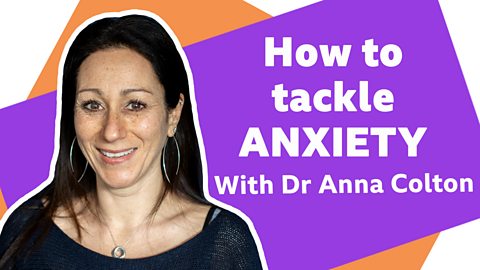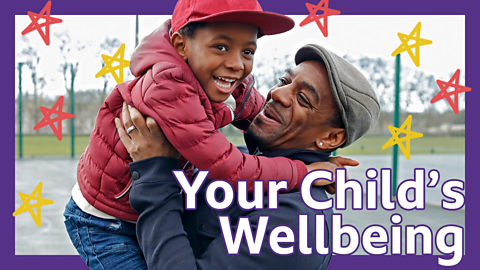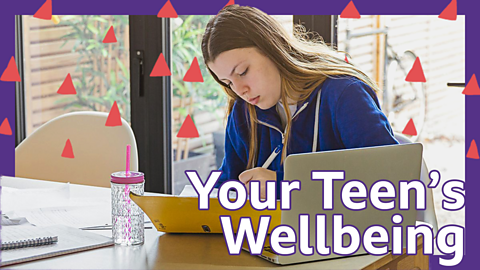, the Anti-Bullying Alliance discovered that one in four children have suffered frequent face-to-face bullying.
Sadly, this figure is even higher for children with SEND (31%) and children on free school meals (30%).
Psychologist Anjula Mutanda - who also offers her tips and advice on this subject - shares her thoughts on these findings, her own experiences of bullying and how these experiences shaped her as a person and parentā¦

It is shocking, yet unsurprising.
"I was one of those children on free school meals when I was at primary school. I was also one of those children who was bullied for being poor, being black and for coming from a single parent household."
"Being bullied is horrendous for anyone that it happens to. However, it is, in my view, significantly harder for children who already feel; vulnerable, lost, scared and perhaps isolated for a variety of reasons- and who feel too scared to tell someone they trust what is happening to them."
"This was certainly how I felt growing up. In my case as a traumatised political child refugee. I felt like an outlier, and tried various ways to fit in, including, on one memorable occasion, aged only about nine, side with a group of children who were bullying someone else."
"I have learned that what can feel like permanent pain when you are a child is just a moment in time that will pass. I have learned that telling someone you trust is like lifting a terrible weight off your shoulders."
"It is vital that as adults we know the signs and red flags to look out for in our children, so that we can help and support them.I know that it can feel incredibly hard for a child to vocalise what they are experiencing."
"That is why it is absolutely vital that children know that there are people who they can talk to, who will step up and support them, no matter what."


Anjula's advice for parents
Recognising bullying

The Anti-Bullying Alliance defines bullying as āthe repetitive, intentional hurting of one person or group by another person or group, where the relationship involves an imbalance of power. It can happen face to face or online.ā
It can be difficult to work out whether your child is a victim of bullying, but there may be some tell-tale signs. Whilst itās normal to have good and bad days at school, you may notice certain changes in your childās behaviour and mood which could be cause for concern. Typical bullying signs include things like - uncharacteristic outbursts of anger or tears, or your child constantly telling you that they want to stay at home, or for them to start making excuses like saying they feel sick on school days - despite being fine and full of energy at the weekends.
When it seems like they will say or do anything to avoid school, itās important to check in with them. Noticing patterns of withdrawal, acting out or avoidance behaviours may be their way of expressing stress and anxiety to you.
The first step as a parent is to stay calm. It's natural to feel anger or frustration at the thought that your child is suffering. However, your child needs to feel safe and to know that it's ok to share difficult feelings. If your child is being bullied at school, it can have a negative impact on their mental health, and thatās why it's so important to create a safe space at home where they feel supported and loved and know that they did the right thing to speak up and tell you, so that you can help them.
So, ask your child questions to get a sense of their world at school. Try to find out if they have any friends at school, or who they spend time with at break time or lunch time. If they donāt have friends or spend time alone, they may be having a tough time with the other kids.
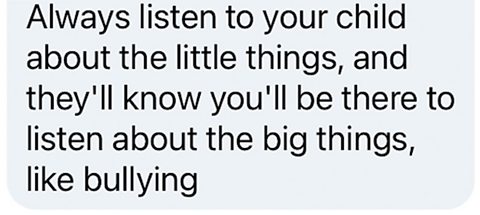
When talking to your child, ask open questions, not closed questions. Closed questions are questions that can only be answered with a āyesā or ānoā e.g. āDo you have friends at school?ā Open questions encourage a longer conversation, e.g. āHow are you finding school?ā or āWhat do you like to do at break time?ā
You could also speak to your childās teacher and ask them to give their perspective - as they may have noticed some changes in your child at school. Or you could ask other parents that you're friendly with, if their child has mentioned anything or shown differences in mood or behaviour.
Empowering your child to deal with bullies
Some parents believe that dealing with bullies the āold-fashionedā way is best - āif they hit you, hit them backā.
This approach may seem like the best way to end the bullying - but in the long run, itās encouraging bad behaviour in your own child. If you tell them that itās ok to hit a bully, they may carry that into other situations in their lives and think itās the best way to react when things donāt go their way.
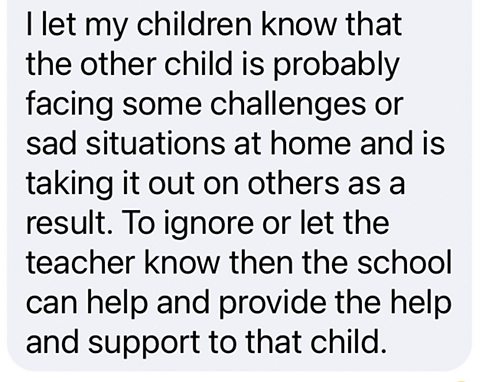
Instead, the key is to focus on encouraging a confident mindset, building resilience, and nurturing their self-esteem.
Together with your child - practice strategies that can help them to stand up for themselves. Practice effective responses and assertive body language that your child could use. For example, if someone teases them, simply replying āthat wasnāt kindā and then walking away can do the trick.
Teach your child that bullies want them to shrink and take up less space so that the bully can feel bigger and more powerful. So, learning assertive body language like holding their head up, and walking tall can help your child to feel more confident.
Emphasise that no matter what the bullies say about them, itās simply not true.
For advice - including how they can spot bullying behaviour, support their friends and get help when they need it - you can direct your child to from the “óĻó“«Ć½'s Own It team.

Working with the school
Your childās school can be really helpful when it comes to navigating bullying. Itās important to share your concern with the school as they can put measures in place to support your child and make their school experience better.
For instance, they can separate the bullies, monitor behaviour on the playground and reprimand bad behaviour through sanctions. These sanctions can include; loss of privileges - (for instance, missing school trips or not being allowed to take part in non-uniform days); detentions during or out of school hours; school based community service or tasks (like picking up litter, tidying classrooms or removing graffiti around the school grounds) and temporary or permanent exclusion from school.
Itās always best to go through the school when dealing with bullying as going directly to a bullyās parents or to the bully themselves can blow things up even more. Schools have experience in dealing with bullying and have protocols in place.
There's government guidance and information on behaviour policies for England , on Scotland's 'Respect for All' approach to bullying , for Welsh schools and parents and for guidance on policies in Northern Ireland.
If you think things havenāt changed then seek help from your school's safeguarding lead, the school governors or the schoolās parentās association. Local and national bullying charities should also be able to help with advice.
What if your child is being a bully?
Children can bully for many reasons - these include: attention seeking, being bullied themselves, or wanting to fit in with a certain peer group.
As a parent It can be difficult to accept that your child may be a bully and a completely normal reaction may be to get defensive or even to self-blame; especially if thereās been something going on at home that you suspect has fed into your childās behaviour.
The key is to take a step back, take a deep breath and donāt let these thoughts take over. Be kind to yourself and think about how to move forward constructively.
If you've been told by school, or another childās parent that your child has been a bully, be straight with your child. Tell them what you were told, and that you're troubled by it and want to hear from them what happened. This may enable you to gain a fuller understanding of what's going on for your child.
Start modelling healthy behaviours at home with other family members. Put in extra efforts to show kindness, empathy, and compassion at home that your child can reflect outside of the home. Praise your child when you see them display empathic and caring behaviour.
Practice constructive strategies to help them deal with difficult feelings- for instance encouraging them to say something like āI feel angry aboutā¦ā instead of lashing out at someone else.
Have meaningful consequences. For instance - get your child to write a letter of apology to the victim.
Keep the lines of communication open with your child. Sometimes kids really open up when youāre out for a drive or going for a walk.
Speak to your childās school - to find out if there have been any fights or arguments that your child has been involved in - and share your concerns.
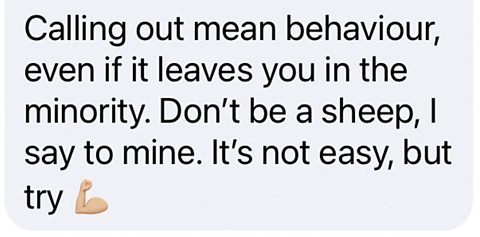
On the other hand, if you suspect your child is being a bystander to bullying, instill the confidence in them to speak up.
For example, if they tell you about an incident that happened at school where one student was teasing another and the whole class was laughing, ask them what they did.
Explain that if it happens again, they should speak up to stop the teasing if they feel comfortable.
If they wouldnāt be comfortable standing up to the bullies themselves, you could explain that just checking up on the victim and befriending them would help them feel a lot better.
In summary
Use open questions to encourage honest conversations with your child so you can spot early signs of problems and listen to their worries.
Build resilience and confidence in your child at home by highlighting their skills, positive behaviours and achievements.Contact your child's school, ask to see their behaviour policy for guidance and work out a plan together to address the issues your child has faced.
Be direct with your child if they are displaying mean and bullying behaviours. Have a conversation with them that helps them to see how it might feel to be on the receiving end of unkind comments. Model healthy conduct at home.Encourage them to speak up in support of other children if they witness bullying behaviour - if they feel comfortable doing so.
Bullying is distressing for children and difficult for parents, but with these tips as a starting point, hopefully you and your child can rise above it and move on.

Further help:
C“óĻó“«Ć½ has this collection of anti-bullying films and advice for children.
For younger children - CBeebies have this guide with help on teaching your child to 'play nicely' with others.
This film from “óĻó“«Ć½ Teach has a viewpoint from someone who is bullying others.
For information and advice, these organisations specialise in resources about bullying:
Anti-Bullying Alliance -
Bullies Out UK -
Bullying UK -
In addition - mental health charity YoungMinds have to help parents help their child deal with bullying issues.

More from “óĻó“«Ć½ Bitesize Parents' Toolkitā¦
Parents' Toolkit
Fun activities, real-life stories, wellbeing support and loads of helpful advice - we're here for you and your child.

Four steps to chatting with your child about their mental health
Starting a conversation about mental health isn't easy. Especially if your child is reticent to open up. This advice from the charity Young Minds may help.
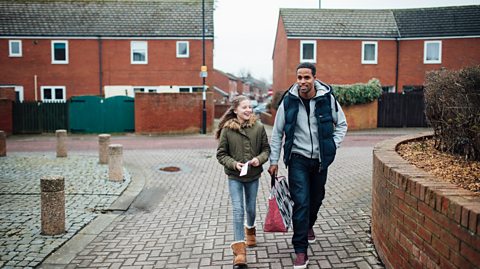
Making a mental health support network to help you & your child
Advice on reaching out for help for you and your child. With tips from mental health charity Young Minds.

How to tackle anxiety with Dr Anna Colton
Dr Anna has made seven short films with easy to learn techniques.
